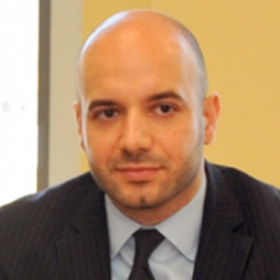
EWI’s Nuclear Discussion Forum
Report from the forum’s final meeting, held July 28 at the Permanent Mission of Kazakhstan to the UN.
On July 28, 2011, the EastWest Institute, in partnership with the Permanent Mission of Kazakhstan, held the fifth and final meeting of the Nuclear Discussion Forum at the Mission’s office. Bringing together states with different vested interests, the meeting series aimed to build trust and help surmount political barriers to nuclear disarmament and non-proliferation.
Eduardo Ulibarri, Ambassador of Costa Rica to the UN, chaired the meeting, which was attended by representatives of 26 permanent missions to the United Nations, as well as representatives from the International Atomic Energy Agency, the United Nations Office of Disarmament Affairs and Department of Public Information.
In the meeting, Amy Woolf, a specialist in Nuclear Weapons Policy at the Congressional Research Service at the Library of Congress, and Hans Kristensen, Director of the Nuclear Information Project at the Federation of American Scientists, led a discussion on reducing the role of nuclear weapons in security doctrines.
Woolf discussed “the who and the what of nuclear deterrence,” adding, “Once we establish who we are trying to deter with nuclear weapons and what we are deterring them from doing then we can start thinking about reducing their role. Reducing the list of ‘the who and the what’ would mean reducing the role of nuclear weapons in security doctrines.”
Kristensen said that the biggest challenge to reducing the role of nuclear weapons in security doctrines is the fact that nuclear-weapon states did not do so at the end of the Cold War. Instead, he added, they seamlessly transitioned their nuclear doctrines and found new threats to deter against.
Ulibarri stated that changes in the geopolitical environment and the evolution of thinking regarding the role of Nuclear Weapons have forced a reassessment of the position of nuclear weapons in national security policy. The new trends of thinking among academics, states, and international organizations include nuclear de-alert, pledges of no first use, strengthening negative security assurances, and establishing regional nuclear weapons-free zones.
In the Nuclear Discussion Forum, previous meeting topics included overcoming obstacles to a Middle East nuclear weapons free zone, managing and verifying disarmament and providing negative security assurances to Non-Nuclear-Weapon States.
“Our common intent to contribute to these issues has led us to come together despite our political differences,” said Byrganym Aitimova, Ambassador of the Republic of Kazakhstan to the United Nations, greeting participants. “Our biggest gain is that we are all now more optimistic that we can work together in this field.”
Overview of the Nuclear Discussion Forum
Over the past seven months, the Nuclear Discussion Forumhas acted as a laboratory for innovative thinking, enabling frank discourse to bridge East-West divides on the roadblocks towards achieving “global zero,” or a world without nuclear weapons. The forum also built trust between states, which is a necessary step for overcoming the political obstacles that hinder bilateral and multilateral efforts towards nuclear disarmament and nonproliferation.
The forum was sponsored by the government of Kazakhstan, which has been a leader in nuclear nonproliferation and disarmament. After its independence, Kazakhstan found itself owning the world's fourth largest nuclear arsenal. Ultimately, the Kazakh government made the decision to destroy the Soviet weapons or move them to Russia; the Semipalatinsk nuclear testing site in western Kazakhstan was closed; and all intercontinental ballistic missile silos were destroyed. Kazakhstan went on to lead the successful effort to establish the Central Asian Nuclear-Weapon-Free Zone (CANWFZ).
The Forum, which met five times between February and August 2011, engaged the UN diplomatic and policymaking community, including representatives from nuclear weapon states, non-nuclear weapon states, international organizations, and outside experts. Each meeting featured a speaker and discussant with a specialized area of knowledge relating to disarmament and nuclear nonproliferation. After initial remarks from the speakers, an open discussion followed in an effort to build trust among key states, identify the next milestones towards global zero, and mobilize international political will around concrete and practical actions.
“The topics discussed were the most salient on the international Nuclear Disarmament and Nonproliferation agenda,” said Jim McLay, Ambassador of New Zealand to the UN. He added that he was awaiting concrete recommendation from the final report, which would serve as a roadmap to global zero.
In September 2011 EWI will disseminate a record of proceedings that highlight the main findings from the series. The work and outcome of the Forum will be presented in a panel event at the UN General Assembly First Committee meeting on October 24, 2011.

